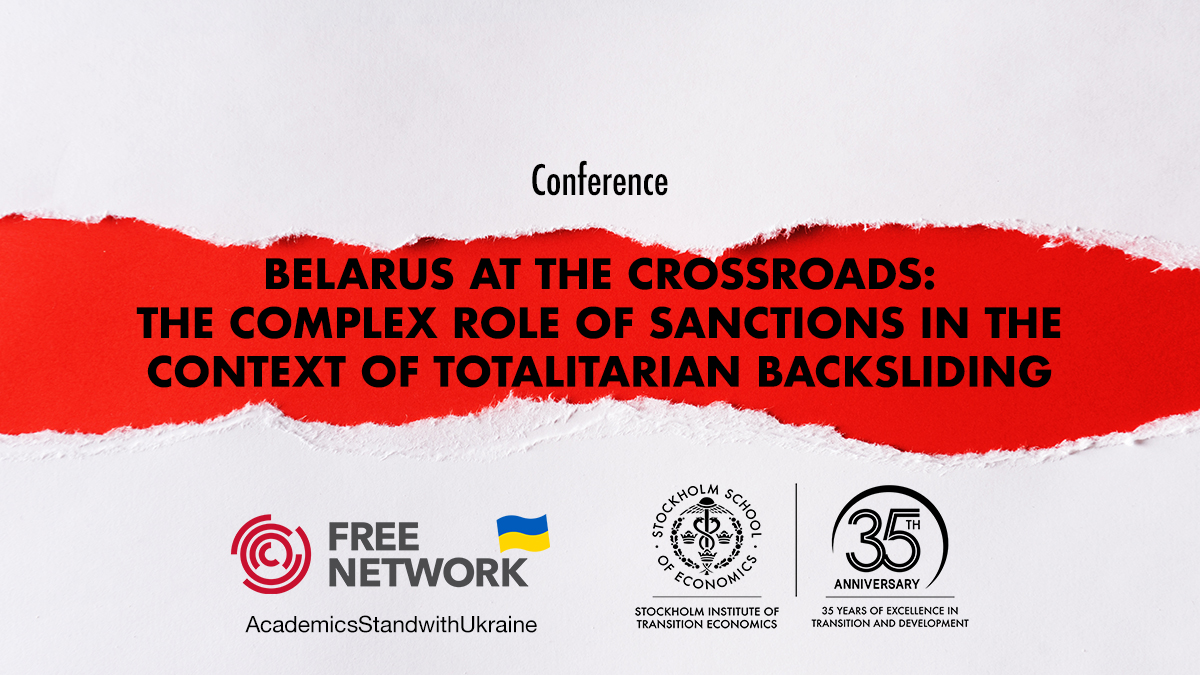Belarus at the crossroads: The complex role of sanctions in the context of totalitarian backsliding
Theme for the discussion
Since the start of the 2020 post-electoral protests and the onset of the full-scale Russo-Ukrainian war, the official relations between Belarus and the West have been largely severed. The EU has imposed several packages of comprehensive sanctions against the Lukashenka regime in response to gross violations of human rights and the complicity of the Belarusian authorities in Russia’s aggression against Ukraine. However, the sanctions are not as severe as those imposed on Russia and the impact and enforcement capacity of these restrictive measures on the Lukashenka regime has been rather debatable. The repressions and the authoritarian tendencies in Belarus have not decreased, and the Belarusian economy has demonstrated relative resilience to the sanctions pressure by reorienting to the Russian market. Thus, the EU has not yet succeeded in bringing democratic changes in Belarus, while Russia has, on the other hand, significantly increased its control over the Belarusian territory and strengthened its leverage over the Lukashenka regime in political, economic and military spheres.
What sanctions has the EU introduced against the Lukashenka regime since 2020 and how have they affected various segments of the Belarusian economy, including energy, potash, and IT sectors? How have sanctions impacted the current macro-economic situation and how has the Lukashenka regime responded to the sanctions pressure? What are the main challenges of the Belarusian business in exile? To what extent has Russia increased its trade and economic integration with Belarus, in particular, within the Union State?
This conference offers a discussion of these and other interrelated questions with invited leading Belarus economists and policy analysts. The results of the conference can serve as a basis for policy recommendations and appropriate strategic responses to various polarizing issues of the sanctions debate. In addition, this event aims to foster exchange and networking between a wide range of participants with an expertise in Belarus, economics, and foreign policy.
Speakers
- Lev Lvovskiy, Academic Director, BEROC.
- Jakob Wollenstein, office leader, Konrad-Adenauer-Stiftung.
- Dzmitry Kruk, researcher, BEROC.
- Lana Willebrand, Operations Development Officer at Union to Union.
- Erlend Bollman Bjørtvedt, founder of Corisk.
- Anders Olofsgård, Deputy Director, SITE.
- Victoria Leukavets, researcher, Stockholm Centre for Eastern Europeans Studies.
- Sierz Naurodski, Executive Director, CASE Belarus.
- Anastasia Luzgina, researcher, BEROC.
- Kanstantin Staradubets, spokesperson, Viasna Human Rights Center.
- Jesper Roine, Deputy Director, SITE.
Registration and program
The event will take place in room A750, Sveavägen 65, 113 50 Stockholm (the main building of SSE) and the registration opens at 12.15 near room A750.
Please proceed with your registration via the Trippus platform by clicking the following link (see here). To see the program please click in the following link (see here).
NOTE: A light lunch will be provided for those who pre-register for the event.
Please contact site@hhs.se if you have any questions regarding the event.
Photo: LIAL, Shutterstock
related events
SITE 2024 Development Day conference
Stora salen, Holländargatan 32, 113 59 Stockholm at 09:00
Misum Forum 2024
Stockholm School of Economics, Sveavägen 65 at 14:00
Swedish House of Finance Annual Conference "Conference on Corporate Governance"
IVA Konferenscenter, Grev Turegatan 16, 114 46 Stockholm at 13:30
